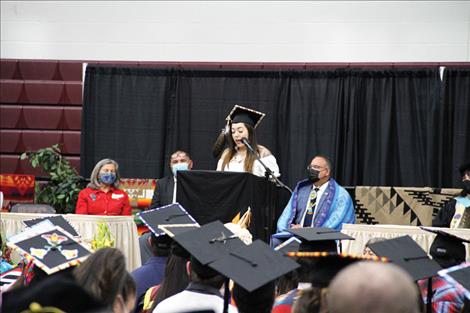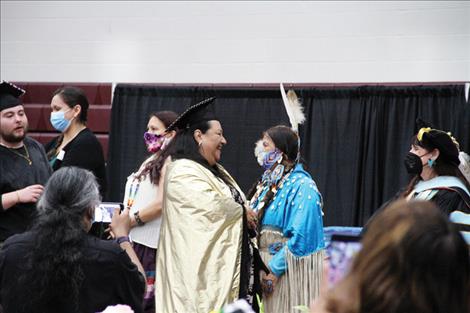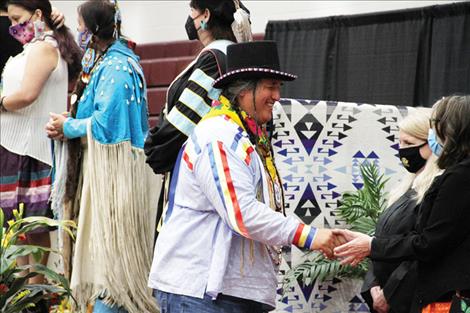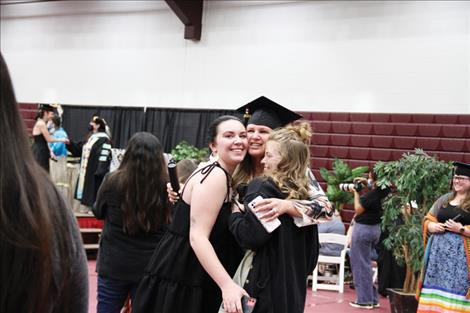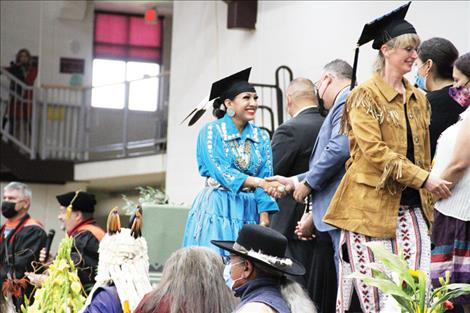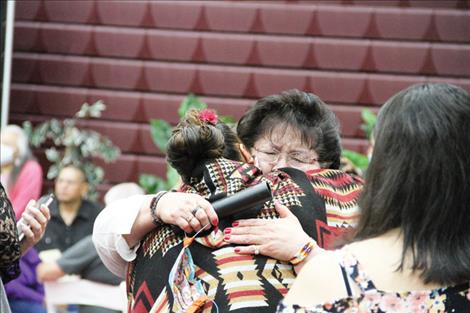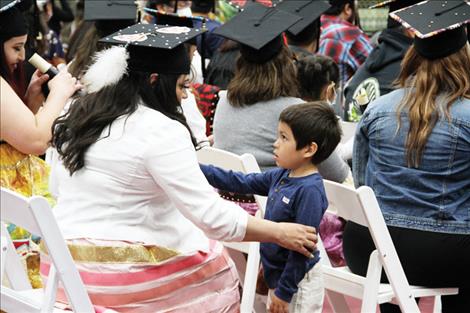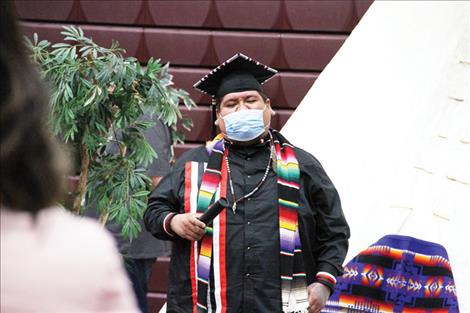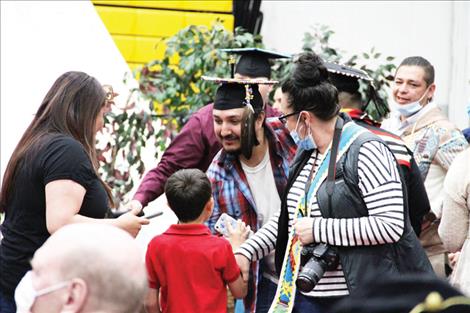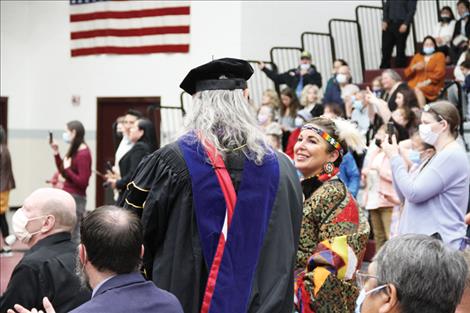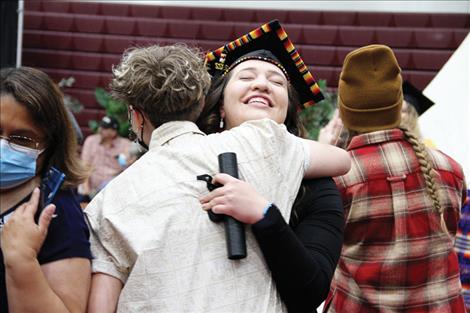SKC holds 2022 commencement exercises
Hey savvy news reader! Thanks for choosing local.
You are now reading
2 of 3 free articles.
POLSON — Polson Middle School teacher Amy Williams was recently awarded the 2022 River Honoring Educator Award from the Confederated Salish and Kootenai Tribes.
The 35th year of River Honoring, put together by individuals and natural resource-focused entities on the reservation, was a two-day event to celebrate and educate on the natural resources and environmental wonder of the area. Each year during the event three honorees who teach and/or are involved with cultural and environmental issues are celebrated.
Recognized for “her dedication to students in the Polson School District in relation to environmental stewardship and tribal cultural awareness,” the award acknowledges the many hats Williams wears in the Polson school district. As a middle school special education teacher, Native American studies teacher, Indian Education for All Co-chair for PMS and much more, River Honoring Educator Awardee Williams integrates tribal ways of being and environmental stewardship in her teachings.
“It was one of those surprises,” Williams said of the award. The scope of things others who have won the award have accomplished has been amazing to her, Williams said, so to be honored herself and placed within a group of people she’s admired was unexpected. “It’s a serious honor to have that recognition,” she stated.
Williams, who’s been teaching in the area for ten years, has accomplished a number of achievements in cultural education, traditional ecological knowledge and traditional sciences both within her classroom and within the likeminded community.
Over the last four years she and others in the Polson school district have been participating in the Smart Schools challenge put on by the Department of Environmental Quality. Montana.gov describes the Smart Schools challenge as a friendly competition to encourage Montana’s K-12 schools to integrate lessons and projects relating to resource conservation, efficiency, and healthy schools. Just last week, Williams received word they’d won the challenge again this year, their fourth year in a row. “My students are rock stars,” Williams said.
A key organization Williams is involved with, the Environmental Advocates for Global and Local Ecological Sustainability (EAGLES) Club, was established through the CSKT Climate Change Committee. According to the website, EAGLES is an initiative to encourage reservation youth to become aware of and involved in environmental and climate change issues locally in their communities, something Williams champions in her classes.
An example of student involvement is the school garden Williams and her colleagues started around eight years ago, something she often integrates into her teaching. According to the award, Williams’ students host an annual Harvest Dinner at the school with foods grown in the school garden. Kids planted the garden and Williams tended the garden in the summer with students, when she could round them up. Students then harvest and prepare foods to share with the community at the Polson Middle School cafeteria. “That small groups of people can get together and make change for water conservation, feeding groups of people locally and by thinking about our changing climate and how we can make a difference,” the award stated.
Another major program Williams has been a team member of is Project AWARE through CSKT Tribal Education. The program recently secured a Substance Abuse and Mental Health Services Administration (SAMHSA) grant. AWARE programs, according to the SAMHSA website, expand the capacity of State Educational Agencies, in partnership with State Mental Health Agencies, to oversee school-aged youth. The CSKT AWARE team is now working on developing curriculum and programs at PHS that will add a more cultural focus. Eventually, Williams said, the plan is to work the program as a culturally focused alternative school to help catch the kids who aren’t as successful in the existing school system while bringing as much tribal and local culture in as they can. Williams will be changing positions to become the program’s lead teacher and will be starting a Masters of Integrated Indigenous Education graduate program at SKC this fall.
“It’s so exciting,” she said of the project. “I’m so excited about really being able to emphasize the cultural values, ways and practices of natural science. It’s so important. We talk about history so often, but all of that is alive and living and breathing today.”
While appreciative of all the recognition she’s received for her work, Williams emphasized that she does not do any of it alone. “There’s so many people in different positions, roles, and departments in the school and community, tribal and nontribal, that’ve helped so much to make all of this possible,” Williams said. “There are lots and lots of awesome people who work so hard and tirelessly, to keep momentum going with it.”
Williams mentioned she also receives support on the state level from individuals in other regions ready and willing to step in and help elevate the educational programs whenever asked. Within these partnerships, as well as the teamwork within cultural committees and Tribal Education, has come the ability for her to do what she does.
“Just knowing there’s so many people who are willing when you reach out,” Williams said. “People willing to not only go the extra mile, but the extra 120 miles, to guide and lead and teach me while I’m still learning things as well. It’s amazing.”















